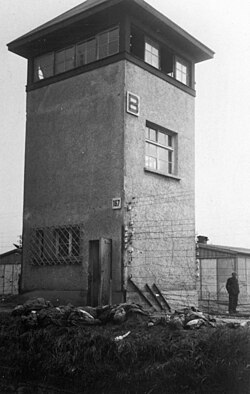Text
The journal contains thirty-nine entries covering the period from May 1936 to October 1944. The entries express Reck's passionate hatred of Adolf Hitler and the Nazis, whom Reck describes as "vicious apes." [2]
In one entry, Reck relates a meeting with Heinrich Himmler in 1934 at which Himmler asked Reck for information. Surprised at Himmler's request, Reck asked Himmler why the "Fouché of the Third Reich" (in reference to Joseph Fouché, the notorious French Minister of Police under Napoleon) needed information from him. Reck relates that Himmler clearly had no idea who Fouché was.
Reck states that he had met Hitler a few times, and in the entry for 11 August 1936 he describes an occasion when Hitler had delivered a diatribe that had left Reck and his companions speechless. After Hitler had departed, one of Reck's companions opened a window to let some fresh air in and dispel the feeling of "oppression". It was as if the room had been contaminated by the "unclean essence of a monstrosity." [3]
In the entry for 11 August 1936, Reck describes how he once saw Hitler dining alone in a Munich restaurant, and expresses regret that he had not shot him dead when he had the chance. He regarded Hitler at the time as a character out of a comic strip, and refrained from shooting him, although he had a loaded revolver with him. The entry ends with a prescient description of how Hitler's end will come down upon him from every possible direction. [4]
Reck knew his journal put his life at risk. In the entry for 9 September 1937, he describes how he has to hide his writing from the Nazis:
My friends have taken the occasion to give me warning about my own writings. Driven as I am by my own inner necessity, I must ignore the warning and continue these notes, which are intended as a contribution to the cultural history of the Nazi period. Night after night, I hide this record deep in the woods on my land ... constantly on watch lest I am observed, constantly changing my hiding place. And this is how we now live, my vanished friends. Do you, who left Germany four and more years ago, have any idea of how completely without legal status we are, of what it is to be threatened with denunciation at any time by the next hysteric who comes along? [5]
Despite this caution, Reck was, by his own accounting, open about his anti-Nazi views with friends and family, some of whom were intensely loyal to the Nazi regime. [6]
The final entry, dated 14 October 1944, describes how Reck had been arrested and subsequently charged with "undermining the morale of the armed forces." This was a serious charge carrying the death penalty. In a following hearing, he was cleared and released after the unexpected intervention of an SS general, whom Reck refers to as "General Dtl". Reck then makes the prescient statement that the Nazis will be rooted out, pursued remorselessly and reduced to their true level. [7]
This page is based on this
Wikipedia article Text is available under the
CC BY-SA 4.0 license; additional terms may apply.
Images, videos and audio are available under their respective licenses.

